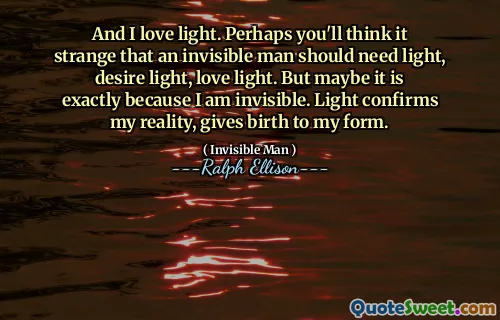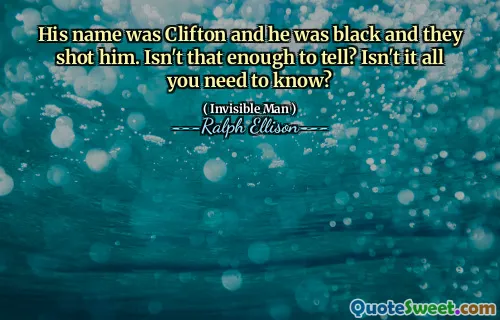
They were very much the same, each attempting to force his picture of reality upon me and neither giving a hoot in hell for how things looked to me.
This quote delves into the complex dynamics of individual perception and the often conflicting perspectives within human interactions. It highlights a recurring theme: the tendency of individuals to impose their own realities onto others, dismissing or disregarding differing viewpoints. Such behavior reveals a lack of empathy and an egocentric attitude, emphasizing how people can be so entrenched in their personal beliefs that they ignore the validity of others' experiences.
Reading this, I am reminded of the broader societal struggles where dominant narratives or personal biases overshadow diverse truths. It underscores the importance of acknowledging multiple perspectives to foster genuine understanding. When neither party cares about how the other perceives the world, communication becomes superficial, and empathy diminishes, leading to alienation. The phrase "neither giving a hoot in hell" vividly captures this disregard, suggesting a toxic reluctance to engage with or respect differing viewpoints.
In the context of Ralph Ellison's 'Invisible Man,' this insight resonates profoundly. The novel explores themes of identity, perception, and societal invisibility, illustrating how people often refuse to see the full reality of others. The quote emphasizes that such blindness—whether deliberate or unconscious—can deepen misunderstandings and social fragmentation.
Ultimately, the quote serves as a poignant reminder of the importance of humility and open-mindedness. True understanding requires humility to accept that one's vision of reality is limited, and a genuine willingness to see the world through others' eyes. Without this, relationships remain fraught with conflict and miscommunication, laying bare the tragic disconnect that results from egocentric perceptions.








